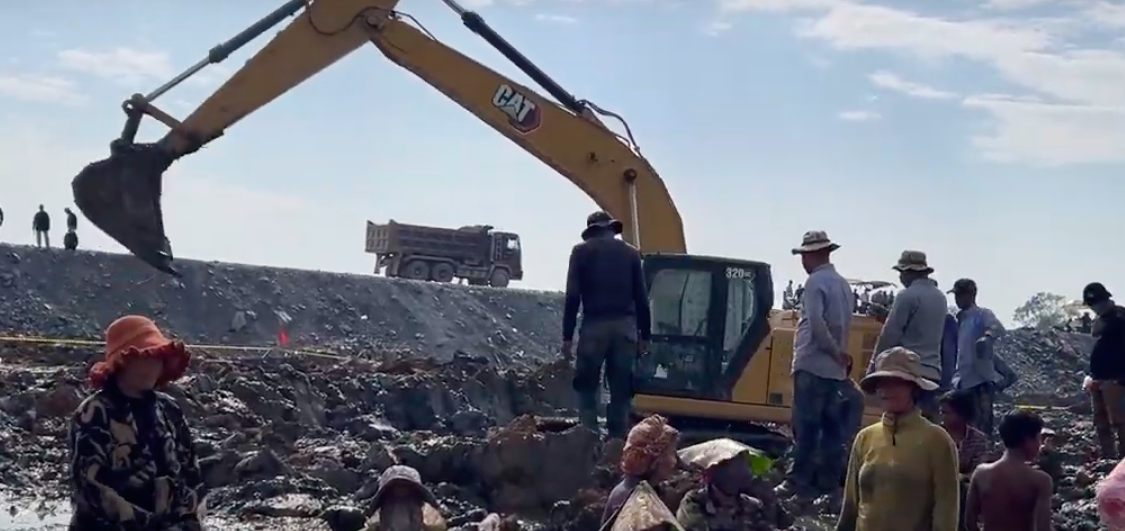Phnom Penh: 200 families in the mud to stop expropriation of their homes
The authorities want to evict the community living on Ta Mok Lake, the largest in the Cambodian capital, to make way for a residential high-rise building. There have been clashes with police forces in an attempt to block the bulldozers. Hundreds of thousands of poor people in Cambodia have been evicted in recent years to clear land for large housing projects.
Phnom Penh (AsiaNews/Agencies) - There are 200 families who, in the area near Lake Ta Mok in the Preaek Phnov district of the capital Phnom Penh, have been immersed in mud since Tuesday to "guard" their homes and their cultivated lands which are to be expropriated by local authorities.
Residents also clashed with law enforcement in an attempt to block machinery brought by a construction company to demolish their homes to make way for a residential skyscraper. The families ask the authorities to reserve at least four hectares of land where they can continue to live.
“I can't be without my home and my land! I also grow rice here which I then sell, but now the authorities say that I have occupied the land illegally and that they will confiscate it,” a woman named Kong Toeur told Radio Free Asia, immersed in muddy water up to her waist to block the bulldozers.
She adds: "Everyone must know this pain that even our children are experiencing because this is the so-called 'law' of Cambodia."
Land grabbing - as well as forced expulsions - is a problem as serious as it is common in Cambodia, where for years thousands of families have been expelled from the countryside, from the coastal areas or - as in the latter case - from the urban areas close to the capital to make room for real estate, mining or agricultural projects.
According to the Cambodian Human Rights League, when communities protest against expropriations, authorities and companies respond with threats and intimidation.
Today the country, among the poorest in South-East Asia, has 16 million inhabitants, but many disputes over land rights and related "state evictions" date back to the 1970s, when the Khmer Rouge regime destroyed the land registers.
Between 2000 and 2014, approximately 770,000 Cambodians, more than 6 percent of the population, were victims of expropriations, according to accusations presented by human rights lawyers at the International Criminal Court (ICC) in The Hague.
Again in 2014 the project to fill Boeung Kak Lake in the suburbs of Phnom Penh - among the largest real estate projects in the country with an affected area of 133 hectares - involved the eviction of over 4 thousand families who lived in the area, many in houses on stilts.
Since the beginning of the week, Tim Ouk, another resident of the Preaek Phnov district, has also recalled how he and the other residents have done nothing wrong and do not deserve eviction: "The authorities must prevent all the machinery from destroying our homes".
But it is the same authorities who have started the procedures for this real estate operation and are looking for land on which to build condominiums and shopping centers which bring a lot of revenue to the public coffers. In this case, the losers, in addition to the families of residents, are the fishermen and food sellers of Lake Ta Mok, the largest in the capital, which today has a total area of over 3,240 hectares (about 8,000 acres). But hundreds of hectares of the same basin have already been "buried" in recent years to build various residential and commercial projects.
11/08/2017 20:05







.png)










